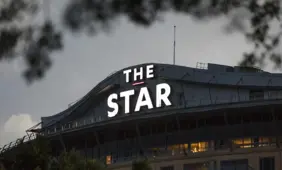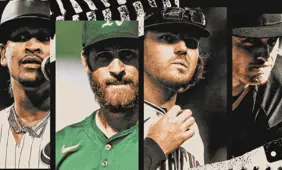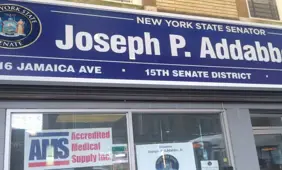Nebraska Auditor Criticizes Regulator for Casino Tax Oversight
Nebraska State Auditor Mike Foley recently issued an audit criticizing the Nebraska Racing and Gaming Commission’s management of casino tax oversight.

Omaha, Nebraska. Nebraska auditor criticizes Gaming Commission for casino tax oversight.
Foley’s report raised concerns about the Commission’s limited review of tax reports, calling it “lackluster” and, at times, “nonexistent”. The audit, which covers the fiscal year ending June 30, is the first review since Nebraska legalized casino gambling at horse racetracks. Four casinos licensed in Lincoln, Omaha, Grand Island, and Columbus generated nearly $20 million in tax revenue designated for property tax relief.
Related: Nebraska Inches Closer to Legalizing Online Sports Betting
Commission Fails to Review or Verify Tax Reports
The audit suggests that the Commission has not adequately reviewed or verified casino tax reports, which are essential for ensuring accurate tax collection. Regulations require casinos to submit both quarterly and annual financial reports; however, Foley’s team found no evidence that these reports were reviewed by the Commission. Discrepancies in tax payments were also identified. For instance, WarHorse Casino in Lincoln reportedly underpaid taxes by $279,064, while Harrah’s in Columbus paid $76,184 more than required.
Foley noted that the Commission failed to address these discrepancies before the Auditor’s office raised questions, suggesting that it lacked the capacity to thoroughly analyze and rectify inconsistencies in tax collections. This led to further doubts about the Commission’s ability to determine accurate tax amounts.
More Finance News
Calls for Enhanced Monitoring
Foley recommended changes to strengthen tax monitoring, including potentially transferring tax review duties to the auditor’s office. He emphasized that these adjustments are crucial to ensuring Nebraska receives its full share of gambling tax revenue.
In response, Casey Ricketts, executive director of the Nebraska Racing and Gaming Commission, acknowledged that the agency had faced staffing shortages, with only one individual responsible for financial oversight until June. Since then, additional staff members have been brought on to enhance the Commission’s oversight capacity. The Commission has also sought guidance from regulatory bodies in other jurisdictions to improve their financial management practices for gambling.
Ricketts also drew attention to the fact that that the Commission’s original mandate focused on horseracing. However, the scope expanded significantly after voters approved casino expansion at racetracks in 2020, bringing new responsibilities for the agency.
RELATED TOPICS: Finance
Most Read
Must Read
 Interviews
Interviews
Sweepstakes Casinos: Thriving in an Ever-Changing Industry – Interview with Attorney Stephen C. Piepgrass
Feb 17, 2025 Interviews
Interviews









Review this New Post
Leave a Comment
User Comments
Comments for Nebraska Auditor Criticizes Regulator for Casino Tax Oversight